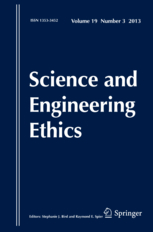 In Latin America, retractions for plagiarism and other issues have increased markedly — which may be a positive sign that editors and authors are paying closer attention to publishing ethics, according to a small study published in Science and Engineering Ethics.
In Latin America, retractions for plagiarism and other issues have increased markedly — which may be a positive sign that editors and authors are paying closer attention to publishing ethics, according to a small study published in Science and Engineering Ethics.
The authors examined two major Latin American/Caribbean databases, which mostly include journals from Brazil, and have been indexing articles for more than 15 years. They found only 31 retractions, all of which appeared in 2008 or later. (Roughly half of the retractions were from journals indexed in the Thomas Reuters’ Journal of Citations Report® (JCR).)
This was a notable result, the authors write:
A striking characteristic of the identified retractions was that they are a quite recent phenomenon in these databases: for both JCR and non-JCR indexed journals, retractions were first issued in 2008.
The increase in retractions suggest journals in Latin American countries are paying closer attention to publishing ethics, the authors note:
Brazil has taken the lead in research integrity and publication ethics in the region and has the highest number of retractions, which may be reflecting stronger editorial and authors’ attitudes toward publication ethics. At the international level, these results suggest that the correction of the literature is becoming global and is not limited to mainstream international publications.
Looking at the reasons for retraction, the authors found that nearly half of retracted papers — 46% — were pulled for plagiarism, followed by allegations of data issues, citation manipulation by journal editors (“stacking”) and authorship concerns.
Comparing retractions between JCR journals and non-JCR journals, the authors found:
Among retractions from JCR journals, [plagiarism] was the reason in six notices, and for the sixteen retractions in non-JCR journals, twelve were attributed to ‘plagiarism’.
Approximately twice as many non-JCR retractions stemmed from plagiarism — among retractions with explanations, 86 % of notices in non-JCR journals stemmed from plagiarism, versus 43 % in JCR journals. According to the authors:
The growth in collaborative research networks is expected to increase the ethical challenges involved in research, and different perceptions of plagiarism in cross-cultural interactions seems to be an issue. On the one hand, although the high number of plagiarism cases suggests a potentially serious problem, the data do not warrant the conclusion that plagiarism is the more prevalent type of misconduct in Latin American science. On the other, they may illuminate the understanding of the problem is the realm of publications in the databases.
There are a few reasons why these data aren’t fully conclusive about the rate of plagiarism in Latin American science, the authors note. For one, other studies of retractions — such as a 2012 paper in PNAS that’s often cited in studies of retractions — have found considerably lower levels of plagiarism in their samples. That 2012 study looked at more than 2,000 retractions; this paper studied only 31, so may be less representative. This paper also didn’t distinguish between “plagiarism” – copying another’s work – and “duplication,” or republishing one’s own work, a distinction often made in other research about retractions.
Another “striking” feature of the retraction notices from Latin America, according to the authors: A lack of “vagueness.”
We’ve often bemoaned opaque retraction notices that give researchers no clue as to what went wrong with a problematic study. That largely wasn’t the case in the two databases, the authors note. As an example, they offered the following text of one of the retraction notices:
Unfortunately, [we submitted] one of the initial versions of the paper. It was a reckless, hasty and impulsive attitude, an outcome of my extensive professional activities. This incident allowed me to rethink and reorganize my life. I thus take responsibility for what happened.
We asked Renan MVR Almeida (author on another recent paper we covered that found papers from countries that publish less frequently are more likely to include plagiarism) why he believes other studies have found a lower rate of plagiarism:
We do not have an answer to this question. We might speculate that while editors of journals in the two databases may consider that plagiarism cases should lead to retractions, other types of correction of the literature can be used. This factor may partially explain why the percentage of retractions for plagiarism would be smaller, as you mention.
As to combining plagiarism and duplication, Almeida stated:
We combined plagiarism and self-plagiarism in the same category as we believe that irrespective of copying from the authors´ own production or from somebody else, both are “copying”; and both are unethical practices.
Like Retraction Watch? Consider making a tax-deductible contribution to support our growth. You can also follow us on Twitter, like us on Facebook, add us to your RSS reader, and sign up on our homepage for an email every time there’s a new post. Click here to review our Comments Policy.
What about revoking degrees for thesis plagiarism in universities from the Spanish Speaking world? Universities from Spain and Hispanic America, with honorable exceptions do not revoke degrees due to plagiarism. Including UNAM (Mexico), Universidad de San Carlos (Guatemala) and Universitat de Valencia (Spain)